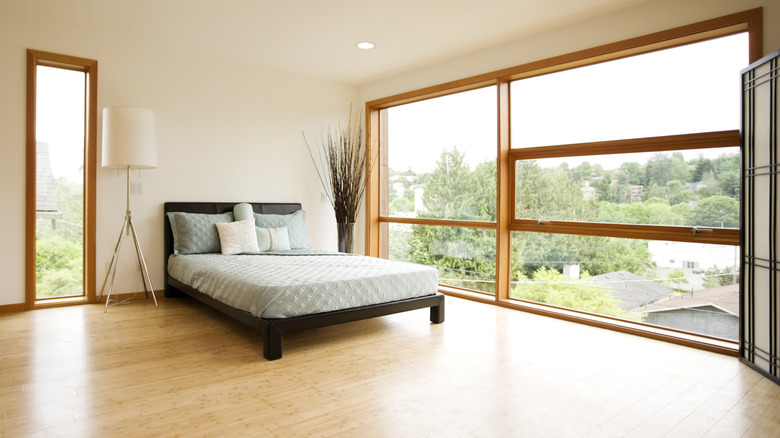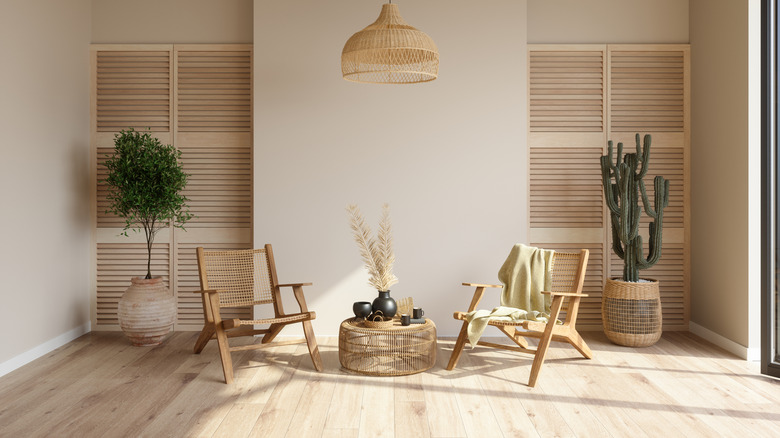The Downsides To Bamboo Flooring You'll Wish You Considered Before Installing
Bamboo flooring is a great alternative to hardwood in the kitchen or elsewhere in your home. It is often favored among homeowners due to its high level of hardness and durability as well as its ease of maintenance and cleaning. It also tends to be very eco-friendly since bamboo is a renewable resource. It grows fast and can be harvested roughly every five years, and it is often farmed in a sustainable way. Further, the material has a nice finish, so it can work well for many rooms and home styles. However, bamboo flooring has a few major downsides, such as limited styles, sensitivity to scratches, manufacturing concerns, and moisture intolerance.
Although bamboo is quite strong and durable, it is susceptible to certain issues. The wood can warp if it's exposed to a lot of moisture or water leaks onto it. Bamboo can be sensitive to such conditions, leading to buckling or swelling if not treated right away. Therefore, proper sealing is important for your flooring to last. Another thing to consider is that style options for bamboo flooring are limited. There aren't as many designs to choose from when compared to other types of hardwood. Further, the material tends to have a uniform look with a somewhat mundane grain pattern. If you want more unique designs to choose from, you'll find better options with other wood flooring, like oak or maple.
More reasons to reconsider bamboo flooring
Despite its relative durability, bamboo is still vulnerable to damage, like scuffs and dents. It can be scratched due to excessive use, frequent foot traffic, or contact with furniture and other heavy objects. Plus, darkened bamboo flooring can be more prone to such issues. You'll need to put effort into mitigating scrapes and keeping your bamboo flooring in pristine condition. Fortunately, scratches can be limited with the help of rugs, felt furniture pads, and other protective measures. They can also potentially be removed with sanding and refinishing, but it's best to prevent them in the first place.
Also, although bamboo tends to be a non-toxic flooring option that you can feel good about installing, the quality and manufacturing processes vary. Most bamboo flooring is made in China and other countries in Asia, and it's hard to know for sure whether toxic glues or volatile organic compounds (VOCs) were used. Some manufacturers will also process bamboo that's too young, leading to low-quality flooring materials. If you do decide to purchase bamboo floors, keep this in mind and learn everything you can about a particular manufacturer before buying from them. This will give you the best chance of getting a quality product that you'll be satisfied with. Depending on your needs, bamboo flooring may not be the best choice for your home.

